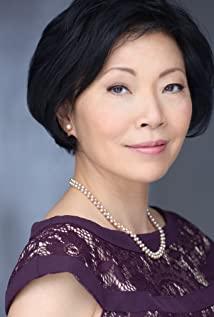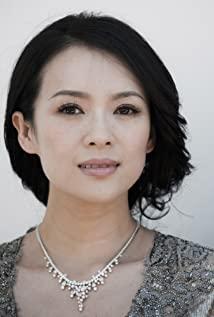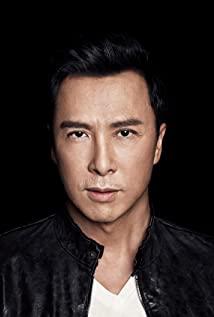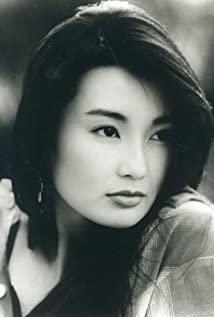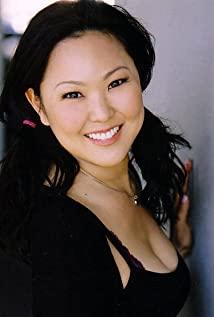essay: Liang Weixing,
I have always been uninterested in hyped things, and even less interested in Zhang Yimou. This person has never given me even a little surprise or shock.
Therefore, I have no enthusiasm for "Heroes" at all, and when the online scolding is overwhelming, I know that my speculation about Zhang has come true again. I'm not disappointed, what's there to be disappointed about? Can this person shoot anything good?
However, I finally watched "Heroes", and it was a friend's kind threat. He is a fan of Zhang, and almost all of Zhang's films I have watched are provided by him forcibly. And it's all pirated copies of hard work, and it's hard to get away with kindness. However, this time, I didn't feel any entertainment at all. I felt that I had eaten a fly, and I felt extremely uncomfortable. Like Mr., I have never been afraid to speculate on the Chinese people with the worst malicious intentions, but every time it proves that I am still too naive, I can never imagine how many Chinese people who always consider themselves elites are. Shameless and next *.
Indeed, this time Zhang went too far, he actually played the original, he actually regarded the TV show as a pure propaganda tool, and the object of catering was naturally to the rich and inhumane and hot elites and their ideological umbrellas.
After watching the TV show, I felt uncomfortable for a long time. A line of subtitles on the video disc often appeared in front of my eyes. It was funny to say that it was not any line, but a line of big characters on the title: China Authentic Pirate Company. This line of text made me realize that the wisdom of the Chinese people is really extraordinary - it's funny, right? But it also pinpointed the position of our great director Zhang Da: Master Zhang's is indeed an authentic pirate company, looking back All of the rambunctious films he made were to reproduce the ideological and cultural trends or mainstream ideologies that were popular at the time in the language of electric performances in order to cater to the so-called ideological elites or the elite and the rulers. He pirates whatever is popular in the era; he copies whatever the powerful and powerful need; and the era is of course a glorious era; Master Zhang really keeps pace with the times!
—, "Old Well", "Red Sorghum"
The era of "Old Well" and "Red Sorghum" belonged to the era when the cultural root-seeking trend swept the north and south of the Yangtze River. It cannot be said that the root-seeking cultural trend of thought did not have the ideological and cultural significance of progress in the mid-to-late 1980s. However, the significance of such progress is to be greatly reduced. He is somewhat similar to the relationship between the Crescent Poetry School and the Kuomintang: scolding and helping. Moreover, in the history of Chinese thought and culture, the trend of seeking roots and returning to the ancestors can be said to be everywhere, and such trend of seeking roots will arise after almost every turbulent era. Fundamentally, these root-seeking trends are either looking for a new basis for the legitimacy of the rulers; or looking for powerful excuses for the absurd rule of the rulers in the previous period; or looking for new ideological resources for the intellectual elites in panic to ease their spirits Crisis, in essence, is still to find a reason to escape from one's own conscience and responsibility. It can be said that the Chinese people's enthusiasm for seeking roots again and again is one of the fundamental reasons why traditional culture is deeply rooted, and it is also one of the fundamental reasons why China's conservative forces are extremely strong in every era of urgent change in China; it can be said: five thousand years. The history of the chaotic cycle is also the history of slaves or minions seeking their roots and revering their roots. Therefore, the reforms of any era in China almost always end in a strange form: they are often the shell of the reforms, while the traditional culture is still the only one that integrates the ideological culture and the political and ethical order after the reform. It's just that the integration force of this traditional culture in each era may be different. For example, the cultural force that Confucius tried to use to integrate his era was Zhou Li, the early Han Dynasty was the way of Huang Lao, and the Han Dynasty was Confucianism. There is no doubt about the integration of these traditional cultures in the social, cultural, political and ethical order that has collapsed and split in each era. The problem is that Chinese thinkers have never been able to think about what the root of Chinese culture is—of course, every kind of Cultural theories have their own way, but it seems self-evident that this way is the ultimate, and there is no need to ask. Whether this should be criticized or not has never been considered. It is often the era that needs this kind of cultural integration force to take this as a standard, and that era needs other cultural integration forces to take it as a standard. The result is always that several kinds of cultural ideas are criticizing each other, and their forces disappear due to different eras. Peter long. Thinkers have never thought about examining these traditional cultures as a whole at a higher level, let alone who has the upper hand in the relationship between the so-called ultimate way of these traditional cultures and the situation in reality. Therefore, the result of the changes of each era is that these roots alleviate or even eliminate the crisis of legitimacy of autocratic imperial power and dictatorship, so that all of them are accepted and even favored by the rulers.
In the mid-to-late 1980s, the ideological and cultural roots-seeking trend still followed this old path. When China's ideological and cultural elites turn their eyes to the ancient times and turn to the people, whether they agree or criticize, they actually alleviate the legitimacy crisis of the party-state's rule and find a powerful excuse for the party-state's bad rule. Does traditional culture bring disaster to the country and the people? Yes, such a poisonous and far-reaching traditional culture has indeed brought disaster to the country and the people. Fortunately, there is the wise leadership of our party. Otherwise, how could the turmoil of the past ten years be stopped in time! Are citizens deeply inferior? Yes, such a terrible national inferiority, conspiracy to betray and murder for ten years... How can it be avoided? Fortunately, there is this party to turn the tide, otherwise, I don't know what will happen! Do you praise traditional culture? Well, we are to oppose the liberalization of the bourgeoisie, we must adhere to one center and two basic points, we must prevail over everything else, and we must rule the country by virtue! In this way, Xungen backfired and turned to his own opposite. He not only objectively became a defense of autocracy and dictatorship, but even increased the intensity of autocracy and dictatorship. It can be seen that the positive significance of root-seeking really needs to be evaluated rationally. For example, the essence of the prevalence of metaphysics in the Wei, Jin, Southern and Northern Dynasties was the trend of the times formed by intellectuals evading their own responsibilities and ignoring the repressive and autocratic rule of the Sima regime. This trend of the times has no counteracting effect on the illegal rule of the Sima clan, and even the opposite. In the same way, the root-seeking trend that emerged in the 1980s, especially the subsequent craze for Guoxue, actually catered to the rulers and became the most powerful support for the rulers to cover up historical abscesses and implement autocratic dictatorships. Zhang Yimou is undoubtedly aware of this point. In "Old Well", he digs deeply and criticizes traditional Chinese culture, creating an image of an ignorant, backward, stubborn and conservative China and a variety of images of the Chinese people who are terrifying and frightening. Such an image not only won a deep and serious reputation, but also pleased the intellectual elite, and catered to the authoritarian authorities. When it came to "Red Sorghum", he went back on his word again, and also created the image of a rural person, but this time he became a heroic image full of wild vitality and can inject male hormones into the weakness of the Chinese. No one noticed that he was here. The self-contradiction in the two films, he still has a brilliant record, killing more than one stone with one stone.
2. "Big Red Lanterns Hanging High" and "Chrysanthemum Dou"
In the 1990s, human nature was the most concerned issue in the Chinese ideological and cultural circles, especially those so-called pioneers of culture. Under the banner of human nature, they unscrupulously released their lower bodies and called it: the complete return and liberation of human beings. Undoubtedly, due to cultural, political, ethical, moral and other reasons, the human nature of the Chinese people is indeed under enormous pressure, imprisoned and distorted. Therefore, after the return of people in the 1980s, the complete opening of human nature in the 1990s has become another remarkable landscape in Chinese society. Its progressive significance is obvious to all. However, when the Chinese people narrowly understand the return and liberation of human nature as purely sexual When we open up, can we say that human nature is also severely imprisoned and repressed? No one thought so, they cheered for the nakedness of the lower body. Zhang Yimou once again seized this craze. In these two films, he not only filmed sex, but also filmed incest and jealousy. It is not so much that he is critically alienating and degrading people, it is better to say that he is doing it as a Condiments to cater to people's peeping desires and frantic dreams. He succeeded again. Of course ordinary people like to watch, who doesn't like to watch sex? Intellectuals prefer to watch it. He originally shot it for these people, and of course, the purpose is to gain their recognition, and even become an elite among them - later, it was not that there were writers who specialized in Zhang's hobby to write novels in the hope of getting their eyes open. , will the value double? And isn't all this also a disguised praise for the rulers? The film's setting in the 1920s and 1930s is really ingenious - in contrast, isn't the party's brilliance and greatness contained in it?
3. "Qiu Ju's Lawsuit", "Alive", "No One Can Be Missed"
If Zhang Yimou in the previous stage started his career with criticism, and through criticism achieved his status as a cheap master in the eyes of the Chinese people, especially in the eyes of the elites he actually despised, and made the authorities more satisfied, then from "Qiu Ju Fighting" Lawsuit", he began to sing publicly. Zhang Yimou did this for a reason. Previously, everything he did has won him the honor of being an elite or even a master, and it has also attracted official attention. However, after all, criticism is dancing in shackles. The foundation is likely to be destroyed. Now, his use of the elites has achieved his goal, and he doesn't need to spend his energy on them anymore, and, if he wants to add guilt, if there is a literati in his previous criticism, give him a The accusations are also ready-made, and it is tiring to see the facts from all sides for so many years, and it is simply comparable to singing. Those so-called elites are actually people of fame and fortune. If they have the Shangfang sword, and give them a little color, they will not be fooled! So there is the creation of the singing stage.
"The Case of Qiu Ju" directly matched the party-state's call for a Chinese-style legal system at that time, and his singing of the party-state's mainstream ideology achieved his wish and won him the appreciation of the authorities. However, the following "Alive" made Master Zhang encounter the biggest waterloo since his debut. This is actually a huge injustice. Master Zhang must have never imagined that "Alive" was banned. You must know that Master Zhang really has good intentions for the party-state. In the era of "Alive", the contradictions between all strata of Chinese society are becoming increasingly acute. Bureaucratic capitalism has swept away almost all assets in China, farmers are basically bankrupt, laid-off workers are all over the streets and alleys of large and small cities, and the people are disappointed and hostile to the government. Emotions are increasing day by day, misery...suffering...suffering misery, China has actually become a powder keg that can explode at any time. Master Zhang, who is worried about the party and the country, is in a hurry, so he has "Alive". This film is based on the work of the same name by another avant-garde writer Yu Hua, who is on the verge of degeneration. Like the original work, the film has created an image of a slave who is submissive and happy in the endless suffering. There is no doubt that Zhang's purpose in making this film is to make people in suffering ignore and forget their suffering, and live peacefully, without contention, and without grudges. This film actually promotes the philosophy of slavery and even slavery through and through. Master Zhang certainly hopes that such a philosophy can completely eliminate the despair and anger in the hearts of the suffering people, and live like insects. Only when people live like worms can the country of the party-state be as stable as a rock, and Master Zhang can be his social elite forever! However, Master Zhang's painstaking efforts this time were regarded as a donkey's liver and lungs, and Master Zhang was wronged. So is there a problem with Master Zhang? Of course there is, otherwise, it would not be wrong to flatter. Master Zhang's mistake is that he copied the time span of the novel. That is a novel, and a movie is a visual image. Once it is released, it will be in the eyes of the people of the whole country. Isn't it not only impossible to make people forget the suffering of reality, but also to remind people of the suffering of the past? What's more, this suffering has something to do with our party? It's really a master who will fail every time he thinks about it! In order to atone for his merits and express his sincerity, Master Zhang, who suffered a sap, immediately filmed "No One Can Be Missed", praising the party's humanitarianism and the party's socialist education, praising the party's wise policy and praising the superiority of socialism. Seeing that his attitude was okay, the party gave him a chance - let him make an Olympic bid. The master did everything he could, but fortunately the bid for the Olympics was also successful. Master Zhang is a great contributor!
The crisis is finally over, but Zhang actually has lingering fears. He has been thinking about how to become a party-state dignitary. During this period of time, Ang Lee's "Crouching Tiger, Hidden Dragon" gave him profound inspiration - in fact, Zhang's teleplay has never been There is nothing original, and each of his films has one or several shadows of other famous directors at home and abroad, which is almost the same as that of Chinese writers who became famous after the 1980s! This time, he wants to make Weiguang laugh out loud in his dreams.
"Hero" was born.
Fourth, "Hero"
About "Hero", I actually have nothing to say, everyone can see.
It's a stark political propaganda film, a bit like a film made by Hitler's electric actor. He put a hero's crown on the tyrant, and he unabashedly clamored for the idea of tyranny that the world is unified. He found an inexplicable reason for violence, brutality, blood flow and bones like mountains: peace.
Master Zhang is really powerful. His move not only praised the basic political system of Weiguangzheng, but also supported a series of his current basic policies, and also found a reasonable and legitimate reason for all their terrorist and violent acts. Master Zhang was so eager to express his loyalty that he even canceled the plot of the story-he had to do it, because as long as there was a plot, there might be ambiguity. Master Zhang was afraid. Besides, it was so beautiful to make an Olympic bid. That's not the case. Anyone can do it, he hasn't come out of the pure publicity passion and the deep feelings of Jun En! I have pity for a few good actors, they are used by Master Zhang as a tool to invite credit. Not only that, Master Zhang also seems to be shooting advertisements for tourist scenic spots, hoping to attract more tourists for the prosperity of the party-state. - Really great!
Enough, needless to say, looking back at Master Zhang's directorial history, we can say that he changed from a so-called pioneer director to a naked queen's electric performer [castrate? ] People, not accidental at all. Because he has always been a shameless slave in his bones, and has always used the public to use intellectual elites and popular culture trends as a tool to flatter and indulge the authorities. It is precisely because of this that he is actually the most conscientious replicator of Chinese popular culture and mainstream ideology in the past 20 years.
Zhang Yimou is just a case study of mine. There are still many cultural people similar to Zhang Yimou.
Woohoo!
Attachment: Because I live in the countryside and the data is scarce, there are many places that have not been developed, such as the understanding of root-seeking and the detailed comments on Zhang's series of teleplays, so this is not finalized, and it will be revised as appropriate after everything is ready. .
View more about Hero reviews



